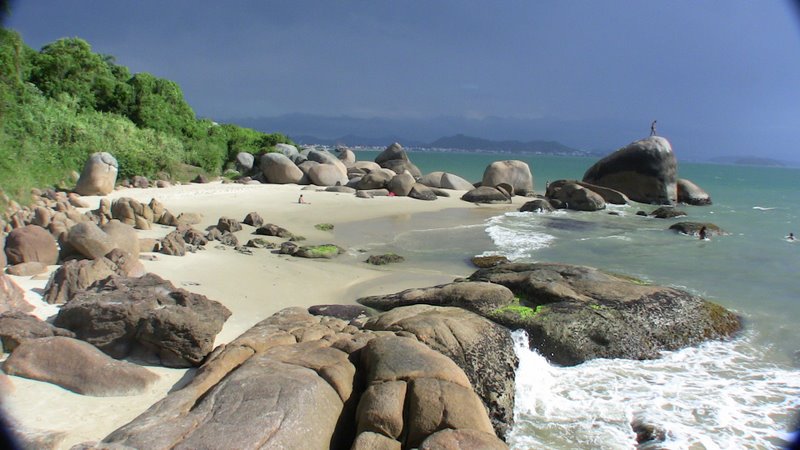
“In the past Italy was way better,” Diva liked to grumble while stirring her espresso.
“Back then my money was Italian, not European. What good is cash that works across the continent if I never leave this village?”
Diva and her husband, Vittorio, live in a small town south of Naples. Both of them are half‑deaf and half‑forgetful. She still believes their youngest kids are at home, a win for any mamma, although they only drop by every other weekend. Accepting that your flock has flown is hard when memory keeps hitting the snooze button.
She claims to be pushing eighty‑five and has battled insomnia for years. First she tried sleeping in the kids’ old room, convinced it was the smell of her fisherman husband that kept her awake. No luck. She decided bad sleep was just a membership perk of the senior club.
The town doctor called it “restless leg syndrome” and said there was no cure. Maybe her head was the real issue. That diagnosis bothered her for about two weeks, then she forgot the appointment ever happened.
During those sleepless nights she roamed the shore in a wool cardigan she knitted decades ago, shuffling over the gritty, pebble‑heavy sand. She would perch on a giant rock, toes in the water, letting the waves rock her feet. Wind traced the lines on her face, water sloshed over her round little toes, and she realized she had spent a lifetime walking into the wind without moving an inch.
Vittorio had spent years fishing the dark Tyrrhenian Sea, the locals’ Gran Triangolo. Diva had never put a toe on a boat and feared the sea’s appetite. Whenever neighbors invited her to sail she waved them off.
“Maybe one day, not today.”
Leaving town felt illegal to her. Where you are born is where you clock out, full stop.
On those midnight walks she noticed her rock had never budged since childhood. Against endless water, that stubborn chunk stayed put. Her routine felt just as fixed, though her legs and mind itched more each night.
One dawn the horizon turned charcoal and thunder grumbled. Rain was on the way. She remembered an old saying: when it rains the politicians are stealing, better shut the windows on storms and thieves. She started for home, then stopped.
“I will be like this rock,” she told herself. “Stubborn, solid. If my feet and wrinkles can handle water and wind, rain will have to deal with me.”
The sky darkened, the sea shifted color, the horizon vanished. A sane person would have bolted. Diva stood her ground. She smelled rain in the thick air as the tide crawled up around the rock. She could still wade back, but she pictured the rock as her first boat and hoped it would not decide to move.
“If it holds, I hold,” she whispered, knees jittery.
Eyes shut, she braced for the first drop. Wind cooled the sweat on her back.
“I am done fighting the wind of my own dreams,” she thought.
The first drop landed between her lips. Salt. Sea spray. The storm was flexing. One single taste was enough. She peeled off the cardigan, flung it into the waves and yelled, “I will never step into that sea, not today, not tomorrow. It won’t beat me. I will stare it down every day I have left.”
The sea answered with silence, so she kept ranting.
“I am an old woman, stubborn and tough like this stone, but I have choices. I choose to stop meeting the sea on this spot. I will chase it wherever it hides. I will use the sun, the rain, and my own dreams as fuel. I do not know the sea’s size and it sure does not know mine.”
The cloud burst never hit the beach, faded before landfall. One drop had charged her up; imagine a full tempest.
Her cardigan drifted off on the current. She watched it go, eyes tracking the far edge of the shoreline. She wanted to walk until it disappeared, but her fired‑up dreams had stronger legs than her body.
Wishing for wings, she remembered Vittorio’s rust‑green Cinquecento parked at home. More rust than green, really. She hustled back, heart thumping.
Vittorio was up making coffee.
“I dreamed of you on a tough little boat,” he said.
“Where are the car keys?” she asked.
“In the car. Did you forget something?”
“Yes. Living. I finally lost my fear of the sea. Your dream nailed it, I am going sailing.”
He beamed. “My stubborn wife, at last.”
She shot the espresso, stuffed a bag, and headed out.
“I am the captain of my boat now,” she told him.
“Need help?” he half‑heard.
“No. This one is on me.”
“Lunch is on me then. I will be waiting.”
She could not promise anything. Unsure where the road would end, she slipped behind the wheel. The little engine coughed to life, thunder on four cylinders. For the first time she felt the wind at her back.
Health, cash, and time were running low, but she had never stripped off society’s chains with such glee. That day she did not drive far, yet she never lost sight of the water. By week’s end she reached the heel of Italy, lands and seas she had only heard in gossip.
She met Italians living lives just like hers, yet speaking in accents that felt foreign. They told her about other seas, seas inside seas, and oceans that made her Tyrrhenian look like a kiddie pool.
Her dreams ballooned. Gran Triangolo shrank. Diva eyed the warm Ionian Sea, the clear Adriatic, hugged most of the Italian coastline, and sensed she was still only skimming the real Mediterranean.
One night up north her restless legs finally eased, and loneliness slipped in. She turned back for Vittorio’s promised lunch. Always the coast road. At the house she found silence. No coffee smell, no fisherman waiting.
Facing absence hurt worse than facing surf. At sea she faced herself, something she had dodged her whole life.
The sky clamped shut. She walked to the beach. The old rock sat exactly where she left it. She climbed up, looked at the sea she swore never to face from that spot, and let herself be as still as the stone. Then, satisfied, she looked inward one last time.
The rock stayed put, unbothered, exactly as before.

Leave a Reply